
Supercharge your lead generation with a FREE Google Ads audit - no strings attached! See how you can generate more and higher quality leads
Get My Free Google Ads AuditFree consultation

No commitment
Supercharge your lead generation with a FREE LinkedIn Ads audit - no strings attached! See how you can generate more and higher quality leads
Get My Free Google Ads AuditFree consultation

No commitment
Supercharge your lead generation with a FREE Meta Ads audit - no strings attached! See how you can generate more and higher quality leads
Get My Free Google Ads AuditGet My Free LinkedIn Ads AuditGet My Free Meta Ads AuditFree consultation

No commitment
Supercharge your lead generation with a FREE Google Ads audit - no strings attached! See how you can generate more and higher quality leads
Get My Free Google Ads AuditFree consultation

No commitment
In the dynamic world of digital marketing, leveraging tools like Google Ads is crucial for companies in the home electronics sector. But, one significant challenge is the lack of visibility into anonymous traffic; potential leads often remain unknown and unpursued. This impacts ROI as businesses struggle to connect with real decision-makers. Modern solutions now allow businesses to deanonymize visitors and enrich Google Ads to enhance targeting with real purchase intent. For businesses looking to connect with potential buyers right when they're searching for solutions, Google Ads offers a strategic edge. This setup guide will help marketers capture consumer intent effectively within a multi-channel marketing approach, integrating both online and offline strategies seamlessly.
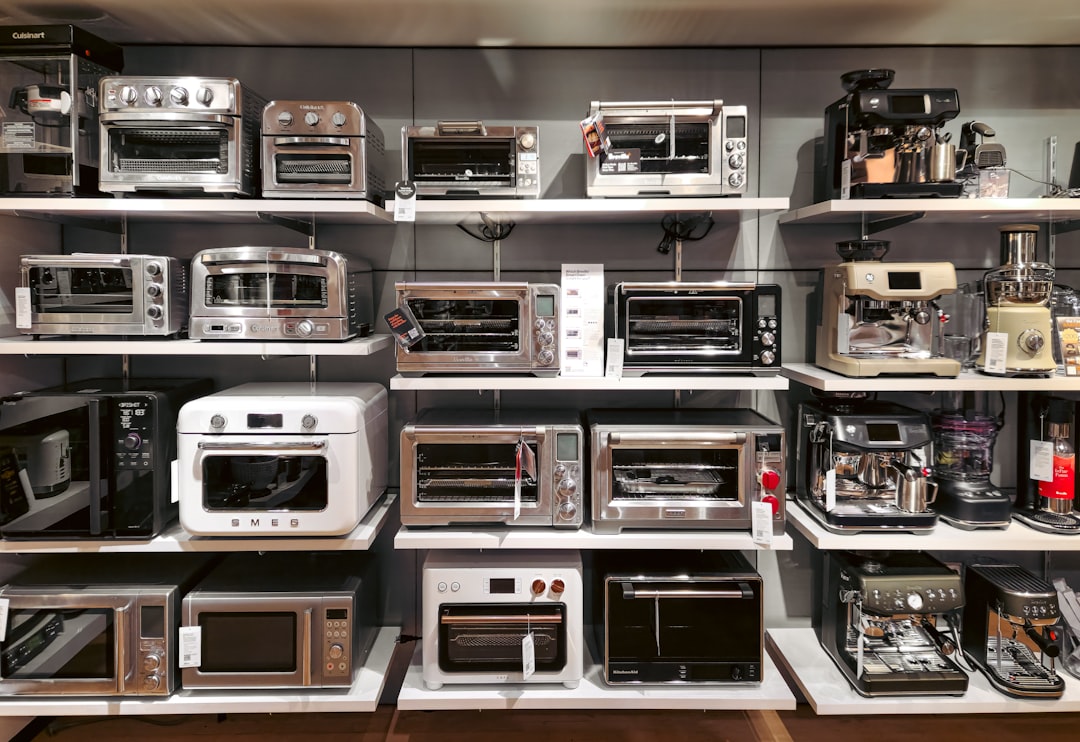
Home electronics companies face intense competition and a digitally savvy buyer base, making precision in paid acquisition crucial for lead generation. Modern revenue teams gain an edge by leveraging advanced segmentation, intent data, and cross-channel integration to reach the highest-value prospects.
Integrating Google Ads into a broader digital marketing for home electronics strategy delivers scalable results when campaigns are meticulously architected around the buyer journey. The following framework equips marketers with actionable steps to maximize PPC for home appliances, optimize Google Ads ROI, and unify lead management for sustained impact.
Effective home electronics advertising strategies begin with granular keyword mapping. Start by identifying commercial-intent terms such as "home appliance deals," "energy-efficient air conditioners," or "Bluetooth speaker installation." Expand lists with long-tail variations and product-specific queries to capture niche demand. Ongoing negative keyword management prevents wasted spend on irrelevant searches, improving overall lead quality.
Leverage Google Ads targeting options to define and build dynamic audiences. Use demographic filters, purchase intent data, and website activity to separate new buyers from returning customers or B2B procurement teams. With advanced platforms, marketers can identify anonymous site visitors, attribute them to specific companies, and prioritize outreach to high-value accounts showing in-market behavior.
Develop compelling ad copy and creative assets tailored to each stage of the buyer journey. Highlight unique value propositions such as "free installation," "warranty included," or "bulk pricing for property managers." Incorporate customer ratings and trust signals to increase conversion rates. Responsive ad formats and automated extensions ensure the most relevant message and offer reach each lead on their preferred device.
Direct traffic to dedicated landing pages aligned with ad promises and audience needs. Each page should provide a clear call to action, mobile-first usability, and content that speaks directly to the targeted segment. Integrate conversion tracking with both online form submissions and offline sales channels, allowing for full-funnel measurement and optimization.
Implement advanced tracking to capture every conversion event, whether online or in-store. Sync enriched audience data and lead outcomes back to Google Ads and connected CRMs, enabling real-time optimization based on true ROI. This closed-loop approach not only reveals which campaigns drive revenue but also supports automated audience updates as leads progress through the funnel.
Go live with staggered budgets and closely monitor campaign performance. Analyze lead quality, conversion rates, and customer engagement for each segment and channel. Use these insights to reallocate spend, pause underperforming ads, and double down on targeting strategies that yield the strongest pipeline growth. Continuous testing, combined with unified data and intent signals, ensures ongoing improvement in home electronics marketing outcomes.
Ready to transform your lead generation efforts? Get started for free with Sona.
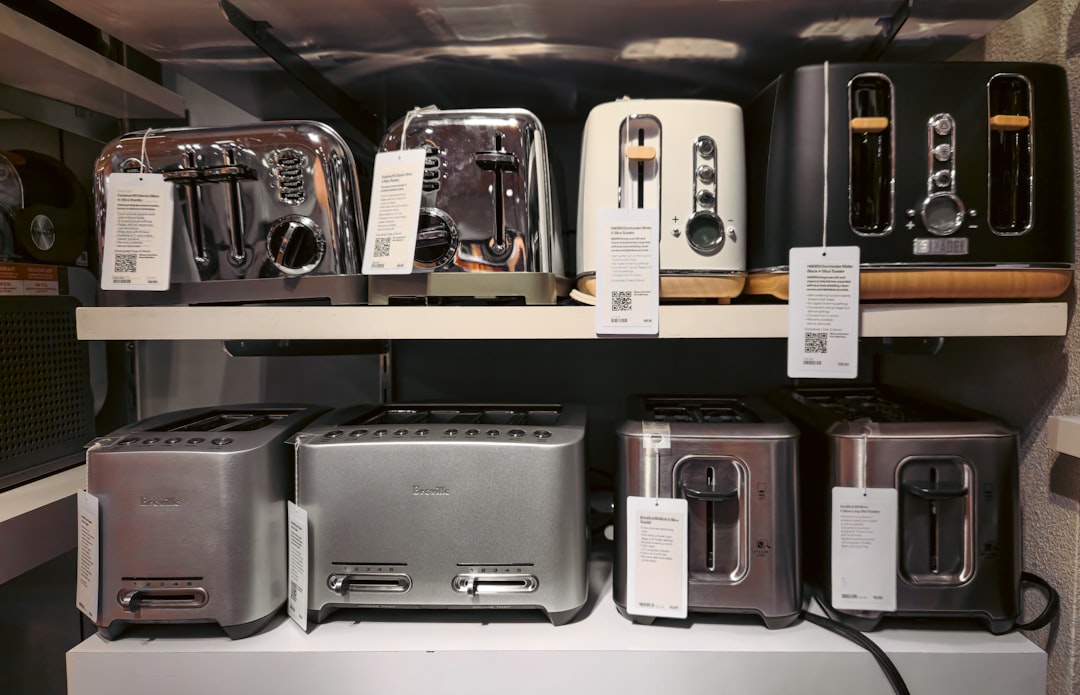
Home electronics marketers operate in a highly competitive landscape where digital buying journeys are complex and fragmented across multiple touchpoints. The ability to stand out and connect with intent-driven buyers hinges on real-time audience insights and the precision to act before competitors do.
A key challenge for revenue teams is distinguishing which leads are genuinely ready to purchase versus those still in research mode. Traditional ad strategies often result in wasted spend by targeting broad audiences or missing timely engagement windows. Predictive modeling now allows marketers to score accounts based on observed digital behaviors, enabling more accurate prioritization and budget allocation within Google Ads campaigns.
For home electronics brands, reaching both established and emerging markets requires maximizing visibility at each stage of the funnel. Advanced visitor identification techniques move beyond anonymous website traffic, pinpointing the actual companies and decision-makers engaging with product content. Feeding these insights directly into online advertising for appliances lets marketers deploy more personalized messaging and aggressive bids to high-value segments, increasing the likelihood of conversion.
Dynamic audience management ensures that as leads progress through the funnel, targeting parameters in Google Ads for Home Electronics automatically update. This reduces manual list maintenance and keeps campaigns relevant, especially as buying cycles accelerate or slow. Integrating CRM and ad platforms further closes the loop by syncing enriched audiences and lead records, allowing for seamless retargeting and more effective home electronics marketing.
With offline and online conversion tracking unified, revenue teams get a complete view of Google Ads ROI. Attribution improves, enabling marketers to confidently invest in the channels, messages, and campaigns that drive measurable growth. This data-driven approach is essential for any brand aiming to lead in the evolving world of digital marketing for home electronics. Get started for free with Sona.
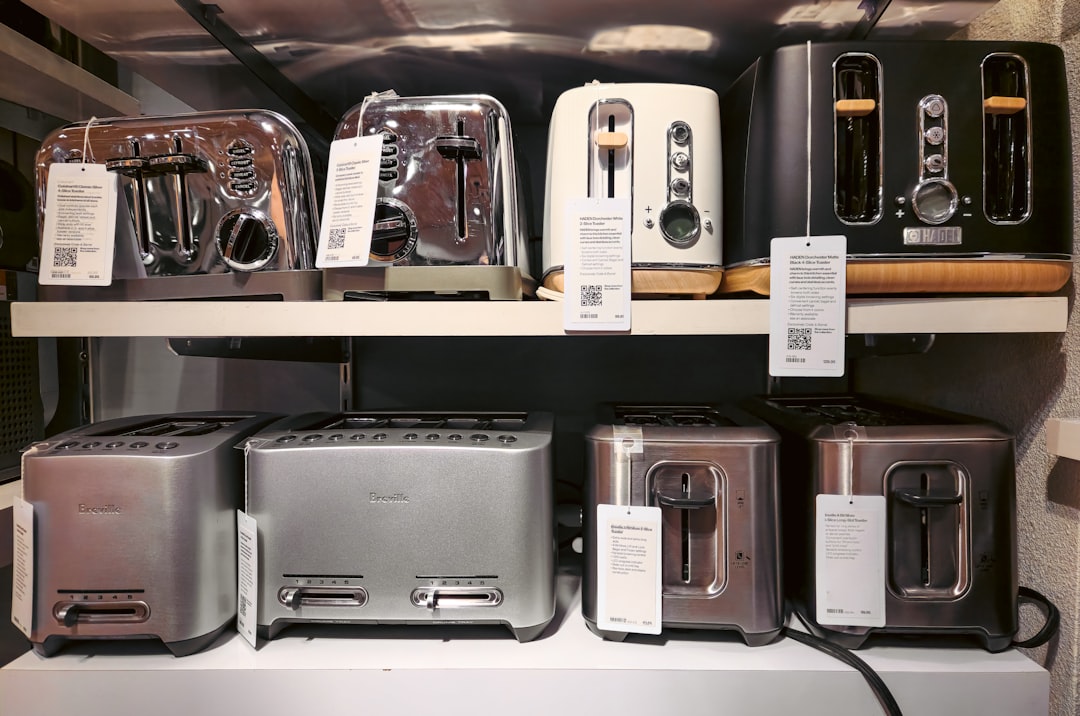
Each campaign type addresses distinct stages in the home electronics buying cycle. Leveraging unified data and real-time audience insights, revenue teams can orchestrate campaigns that respond instantly to buyer intent, personalize engagement, and drive measurable improvements in Google Ads ROI for home electronics. Get started for free with Sona.
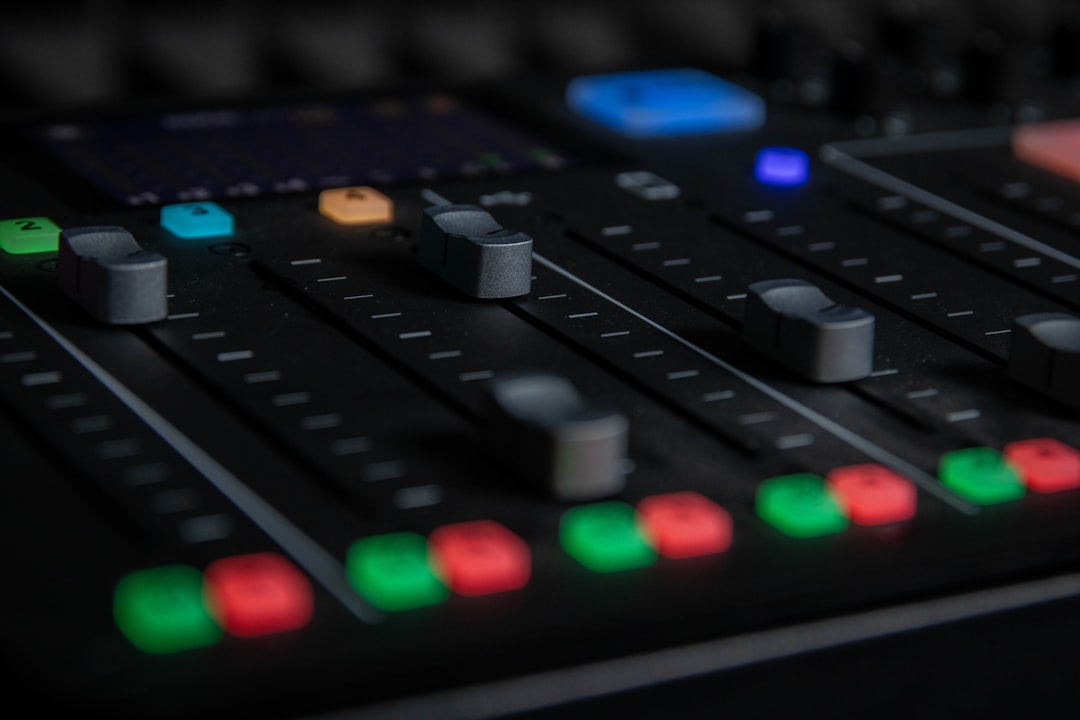
Expanding the reach of your home electronics marketing campaigns requires a strategic approach that goes far beyond simply bidding on high-volume keywords. True growth comes from uncovering new opportunities: identifying untapped search terms, analyzing competitor gaps, and targeting placements that connect with audiences your organic content might miss. By leveraging Google Ads click-through rate benchmarks for consumer electronics, B2B revenue teams can boost their visibility and reach high-intent buyers previously overlooked in standard campaigns. For additional insights, explore our blog articles on data-driven marketing.
The challenge many teams face is not just discovering where to grow, but tying those new touchpoints to pipeline and revenue. Without clear attribution, it is nearly impossible to prove which digital marketing for home electronics initiatives drive real business outcomes. Implementing advanced attribution frameworks delivers full-funnel clarity—connecting every campaign, creative, and keyword to actual closed-won deals, enabling smarter budget allocation and a continuous optimization loop.
Modern platforms allow marketers to move beyond anonymous traffic, providing the ability to identify visitor companies and individuals engaging with key assets. When real-time intent signals surface accounts showing buying behavior—such as repeat visits to high-value product pages or pricing requests—teams can immediately shift budget toward these opportunities. With accurate online and offline conversion tracking, you capture the true ROI from every campaign, ensuring growth strategies are built not just on more clicks, but on measurable revenue impact. Ready to maximize your results? Get started for free with Sona.

Audience segmentation for home electronics enables marketers to align digital campaigns with distinct customer journeys across research, consideration, and purchase phases. By mapping specific segments—such as smart home device researchers, tech enthusiasts, and corporate IT decision-makers—teams can tailor messaging, content, and offers to each group’s unique needs and readiness to buy. For a deeper dive on segmentation strategies and campaign planning, visit the Sona blog.
Consistency in audience segmentation across all digital channels is critical for maximizing user engagement and optimizing ad spend. When audiences are unified, insights from one channel can inform targeting and creative in others, driving a cohesive experience that boosts conversion rates and shortens sales cycles. This approach is especially effective in Google Ads for Home Electronics, where segment-specific targeting increases the likelihood of reaching qualified buyers at the right moment.
Utilizing detailed account and persona mapping, marketers can move beyond generic demographic targeting to behavioral and intent-based segmentation. This process leverages first-party and third-party data to identify visitors as they interact with websites and content. By integrating real-time visitor identification, teams can pinpoint high-value accounts and individual contacts, transforming anonymous web traffic into actionable leads for retargeting and personalized nurture programs.
Real-time intent data further refines audience segmentation by detecting signals such as product comparisons, demo requests, and repeat site visits. This enables marketers to shift budget dynamically, prioritizing high-converting segments as they show in-market behavior. As prospects progress through the funnel, dynamic audience lists update automatically, ensuring active campaigns always reflect the latest lead status for optimal engagement and efficiency.
Advanced conversion tracking closes the loop by tying both online and offline interactions—such as showroom visits or sales calls—back to specific audience segments. This holistic view clarifies which segments generate the highest return on investment, informing future budget allocation and creative direction. For B2B revenue teams, seamless CRM and ad platform synchronization ensures that enriched, segmented audiences are always current, powering more accurate targeting in ongoing and future Google Ads for electronics campaigns. Ready to transform your segmentation strategy? Get started for free with Sona.
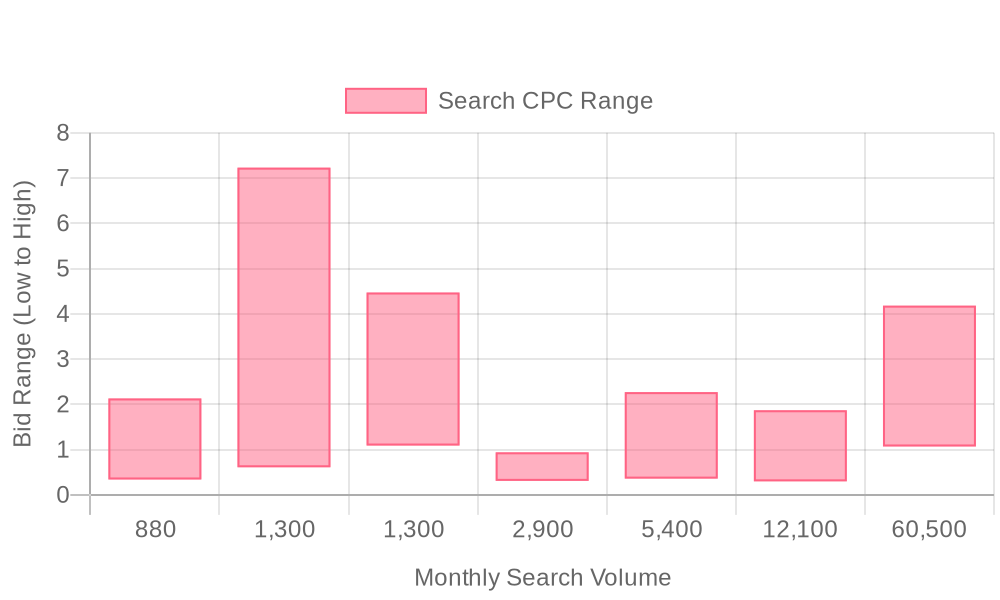
| Industry | Keyword | Monthly Search Volume | Competition Level | Low Bid | High Bid |
| Home Electronics | hepd80 | 880 | HIGH | 0.34 | 2.13 |
| Home Electronics | home electronics | 1300 | MEDIUM | 0.61 | 7.23 |
| Home Electronics | best home appliances | 1300 | MEDIUM | 1.09 | 4.47 |
| Home Electronics | best portable cd player | 2900 | HIGH | 0.31 | 0.94 |
| Home Electronics | karaoke system | 5400 | HIGH | 0.36 | 2.27 |
| Home Electronics | home stereo systems | 12100 | HIGH | 0.3 | 1.87 |
| Home Electronics | home appliances near me | 60500 | MEDIUM | 1.07 | 4.18 |
A well-defined keyword strategy is foundational to high-performing Google Ads campaigns in home electronics. Focusing on intent-rich search terms ensures ad spend is directed toward prospects who are actively researching or ready to purchase, maximizing both reach and relevance. Marketers who align keyword strategies with real customer behavior see improved lead quality and higher conversion rates.
Success starts with comprehensive keyword research that balances search volume, competition, and buyer intent. Prioritize terms like “buy smart refrigerator online,” “best home theater system deals,” or “energy-efficient washer promotions,” which signal commercial interest and immediate needs. To avoid wasted spend, regularly review search term reports and introduce negative keywords such as “manual,” “free download,” or “used parts,” filtering out research-oriented or low-value queries.
Advanced keyword strategies integrate behavioral and firmographic data to refine targeting. By mapping in-market purchase signals and layering company-level identifiers, revenue teams can prioritize ad delivery to the most promising accounts. As leads move through the funnel, dynamic audience lists ensure that keyword targeting adapts in real time, automatically surfacing new high-intent keywords as market trends shift. This approach enables home electronics brands to capture demand efficiently while maintaining campaign agility.
Connecting keyword targeting with unified CRM and website data further elevates performance. When enriched audiences sync directly into Google Ads, marketers can confidently bid higher on keywords tied to verified accounts or open opportunities, rather than anonymous traffic. This unified data flow supports budget optimization, reduces irrelevant clicks, and increases ROI for every dollar spent on PPC for home appliances.
For marketers aiming for next-level precision, get started for free with Sona to connect your audience insights and keyword targeting seamlessly.
Home electronics marketers benefit from a disciplined, data-driven approach to Google Ads. Campaigns that align targeting, creative, and measurement with business objectives consistently outperform those that rely on guesswork or static segmentation. Advanced execution frameworks empower revenue teams to act quickly, optimize budget allocation, and engage high-value prospects with precision.
Strong campaign performance starts with comprehensive keyword research tailored to the home electronics market. Identify high-intent search phrases like "best smart refrigerator deals," "energy-efficient washing machines," or "premium soundbar installation." Use volume and competition data to prioritize terms that align with your value proposition and purchasing funnel. Continually monitor performance to refine and expand your keyword portfolio as new trends or products emerge, leveraging keyword management best practices to maximize ROI.
Dynamic keyword management is essential for adapting to evolving customer behavior. Marketers leveraging real-time audience analytics can rapidly detect shifts in demand—such as increased searches for new product categories or seasonal models—and update targeting accordingly. This approach ensures ad spend remains focused on the most profitable opportunities.
Segment audiences based on firmographic, demographic, and behavioral data to maximize relevance. For home electronics, consider buyer roles (facility managers, procurement leads), company size, or purchase history. Go beyond standard remarketing lists by building dynamic audiences that update as leads progress through research, comparison, and purchase phases.
Visitor identification technology allows marketers to move past anonymous web traffic, pinpointing high-value companies and individuals engaging with your site. As leads move through the funnel, audience definitions refresh automatically, keeping your remarketing and nurture strategies aligned with true buyer intent. This dynamic segmentation ensures campaigns target active opportunities, not outdated lists.
Create ad copy and visual assets that speak directly to the needs and interests of each segment. Emphasize differentiators—such as smart integration, energy savings, or post-sale support—in headlines and descriptions. Use ad extensions to highlight promotions, product categories, or service guarantees relevant to home electronics buyers. For inspiration, explore ad creative tips for electronics and experiment with messaging that resonates.
A/B testing is critical for optimizing creative elements. Run experiments on headlines, calls to action, and imagery to identify combinations that drive the highest engagement and conversion rates. Responsive ad formats enable Google to assemble the best-performing creative dynamically, maximizing reach and relevance across inventory.
Leverage Google Ads targeting options to place your message in front of the right buyers at the right moment. Use geotargeting to focus on locations with high product demand or strong distribution. Layer in-device targeting to reach prospects shopping on mobile or desktop, depending on product type. For further insights, review Google Ads targeting strategies to refine your approach.
Real-time intent signals enable marketers to shift budget toward in-market accounts showing purchase-ready behavior. This ensures spend is directed toward audiences most likely to convert, improving both efficiency and ROI in the competitive home electronics sector.
Landing pages should mirror ad messaging and offer seamless paths to action. Optimize for mobile devices to capture shoppers researching from smartphones or tablets. Use clear calls to action, concise product benefits, and trust signals such as reviews or certifications relevant to home electronics.
Integrating visitor identification and CRM sync allows marketers to personalize landing page experiences for repeat visitors or known accounts. As leads engage across channels, their buyer journey is mapped, and personalized content or offers can be delivered, increasing conversion rates and accelerating pipeline velocity.
Establish robust conversion tracking to capture both online and offline sales outcomes. Track granular events such as quote requests, online purchases, demo bookings, or in-store visits attributed to ad clicks. Advanced attribution models combine multiple touchpoints, revealing the true impact of each campaign on revenue. Learn more about setting up Google Shopping campaigns for comprehensive tracking.
Syncing conversion data directly with CRM and analytics platforms enables revenue teams to measure pipeline influence and closed-won revenue, not just clicks or leads. This unified data view supports continuous optimization, ensuring future spend is allocated to strategies and audiences delivering the highest ROI.
Monitor campaign performance using real-time dashboards and actionable alerts. Identify underperforming keywords, creatives, or audiences and make adjustments rapidly to avoid wasted spend. Use cohort and intent data to uncover emerging trends, shifting budget to capitalize on new demand signals as they arise. For industry benchmarks, reference Google Ads CTR for home appliances to gauge your results.
Continuous optimization is sustainable only when all marketing, sales, and customer data is unified. Marketers who leverage centralized insights can coordinate campaign adjustments across channels, ensuring every touchpoint in the home electronics buyer journey is aligned for maximum impact.
Ready to accelerate your campaign performance? Get started for free with Sona.
Growing your presence in the competitive home electronics market requires precision, creativity, and a data-driven approach that aligns with evolving buyer behavior. Modern brands are unlocking new levels of visibility by blending tailored advertising with value-rich educational content and cross-channel engagement.
To stand apart, begin by developing educational resources that solve real customer problems, such as troubleshooting guides, product comparison videos, and smart home integration tips. Promoting these assets through targeted Google Ads campaigns not only attracts in-market shoppers but also builds trust and authority within your niche. When your content answers the questions your audience is already searching, you capture attention earlier in the decision journey, improving both engagement rates and conversion potential.
Refine your advertising approach by segmenting audiences based on intent, purchase stage, and prior interactions. Brands leveraging dynamic audience tools can react to real-time signals—like browsing patterns or repeat page visits—by shifting budget toward high-value accounts and rapidly growing segments. This agile distribution of spend allows for maximized Google Ads ROI and ensures ad creative stays relevant to the user’s current needs. As intent data flows in, enriched audience lists can be automatically synced to Google Ads, CRM, and sales outreach platforms for seamless activation.
Collaborating with influential industry partners is another high-impact strategy for expanding your reach. By joining forces with recognized electronics reviewers, tech bloggers, or smart home solution providers, you tap into highly engaged audiences that already trust the messenger. These partnerships often include co-branded campaigns or guest content, amplifying your digital marketing for home electronics and strengthening positioning with both consumers and trade buyers.
Attribution remains a persistent challenge as buyers engage across multiple touchpoints before making decisions. Integrating advanced conversion tracking and multi-touch attribution provides revenue teams with a clear view of which strategies and content assets truly drive pipeline and closed deals. When online and offline signals are unified, it becomes easier to optimize campaigns, credit the right channels, and continuously refine home electronics advertising strategies for maximum growth. To take the next step and see how unified data can power your campaigns, get started for free with Sona.
Navigating the world of digital marketing for home electronics can be daunting, yet it's a powerful way to amplify your brand’s reach and engage with the right audience. By leveraging Google Ads effectively, you can transform your advertising strategy, ensuring your products stand out in a saturated market.
We've explored the core challenges of targeting the right audience, optimizing ad spend, and crafting compelling ad copy. The solutions lie in understanding your audience, using data-driven insights, and continuously refining your approach. This ensures your campaigns not only reach potential customers but engage them meaningfully.
Imagine the possibilities when your ads resonate perfectly with your target market, driving both engagement and sales. Embrace the tools and strategies discussed to elevate your advertising efforts, turning your vision of success into reality. Remember, the right approach can transform your marketing outcomes and propel your business forward.
Ready to take the next step in revolutionizing your advertising strategy? Start for free to experience our platform and its capabilities today, and unlock the potential of your Google Ads campaigns for home electronics.
The best practices include using advanced segmentation, intent data, and cross-channel integration to optimize Google Ads ROI. This involves targeting high-intent keywords, dynamic keyword insertion, tailored ad copy, and real-time conversion tracking to capture and convert leads effectively.
To create effective campaigns, start by building targeted keyword lists with high-intent search terms, segment audiences for precision, craft high-impact ad creative, and optimize landing pages for conversion. Implement advanced tracking to measure campaign success and continuously iterate based on performance data.
The budget should be allocated based on targeting strategies that yield the strongest pipeline growth, focusing on high-intent keywords and precision targeting to minimize wasted spend and improve ROI.
Targeting options include demographic filters, purchase intent data, website activity, geotargeting, device targeting, and advanced platforms to identify anonymous site visitors and prioritize high-value accounts.
Success is measured through real-time conversion tracking, analyzing lead quality, conversion rates, and customer engagement. Integrating CRM data allows for full-funnel measurement and optimization, revealing which campaigns drive revenue and supporting continuous improvement.
Join results-focused teams combining Sona Platform automation with advanced Google Ads strategies to scale lead generation

Connect your existing CRM

Free Account Enrichment

No setup fees
No commitment required

Free consultation

Get a custom Google Ads roadmap for your business
Join results-focused teams combining Sona Platform automation with advanced Meta Ads strategies to scale lead generation

Connect your existing CRM

Free Account Enrichment

No setup fees
No commitment required

Free consultation

Get a custom Google Ads roadmap for your business
Join results-focused teams combining Sona Platform automation with advanced LinkedIn Ads strategies to scale lead generation

Connect your existing CRM

Free Account Enrichment

No setup fees
No commitment required

Free consultation

Get a custom Google Ads roadmap for your business
Join results-focused teams using Sona Platform automation to activate unified sales and marketing data, maximize ROI on marketing investments, and drive measurable growth

Connect your existing CRM

Free Account Enrichment

No setup fees
No commitment required

Free consultation

Get a custom Google Ads roadmap for your business
Over 500+ auto detailing businesses trust our platform to grow their revenue
Join results-focused teams using Sona Platform automation to activate unified sales and marketing data, maximize ROI on marketing investments, and drive measurable growth

Connect your existing CRM

Free Account Enrichment

No setup fees
No commitment required

Free consultation

Get a custom Google Ads roadmap for your business
Over 500+ auto detailing businesses trust our platform to grow their revenue
Join results-focused teams using Sona Platform automation to activate unified sales and marketing data, maximize ROI on marketing investments, and drive measurable growth

Connect your existing CRM

Free Account Enrichment

No setup fees
No commitment required

Free consultation

Get a custom Google Ads roadmap for your business
Over 500+ auto detailing businesses trust our platform to grow their revenue
Our team of experts can implement your Google Ads campaigns, then show you how Sona helps you manage exceptional campaign performance and sales.
Schedule your FREE 15-minute strategy sessionOur team of experts can implement your Meta Ads campaigns, then show you how Sona helps you manage exceptional campaign performance and sales.
Schedule your FREE 15-minute strategy sessionOur team of experts can implement your LinkedIn Ads campaigns, then show you how Sona helps you manage exceptional campaign performance and sales.
Schedule your FREE 15-minute strategy sessionOur team of experts can help improve your demand generation strategy, and can show you how advanced attribution and data activation can help you realize more opportunities and improve sales performance.
Schedule your FREE 30-minute strategy sessionOur team of experts can help improve your demand generation strategy, and can show you how advanced attribution and data activation can help you realize more opportunities and improve sales performance.
Schedule your FREE 30-minute strategy sessionOur team of experts can help improve your demand generation strategy, and can show you how advanced attribution and data activation can help you realize more opportunities and improve sales performance.
Schedule your FREE 30-minute strategy sessionOur team of experts can help improve your demand generation strategy, and can show you how advanced attribution and data activation can help you realize more opportunities and improve sales performance.
Schedule your FREE 30-minute strategy session





Launch campaigns that generate qualified leads in 30 days or less.
